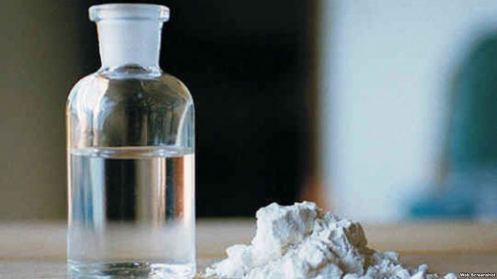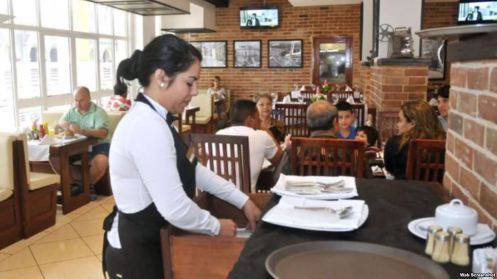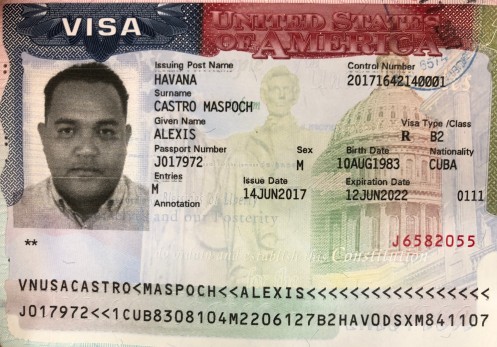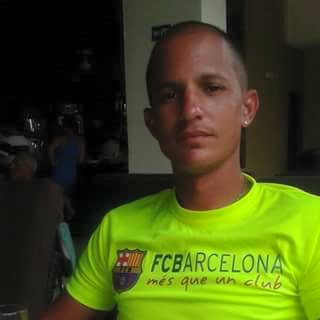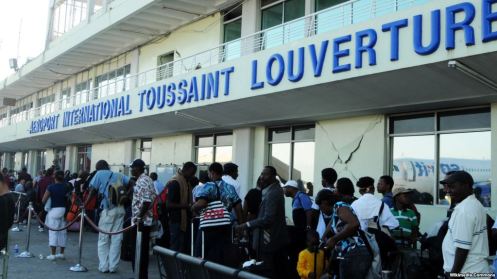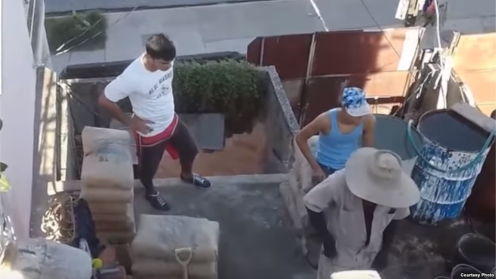
Juan Juan Almeida, 20 March 2018 — The historical leadership of the island’s regime proceeds, forced and with urgency, towards a transfer of power that does not arrive by conviction but by biological exhaustion. Therefore, for the men and women on whose shoulders the support of the structure of the Government and the State weighs, much more than the successor, the important thing is to know who will be the members of the new Government group that will be installed this coming 19 April. Who will be the vice presidents and ministers, who are already emerging as the new influencers?
Born on 1 September 1964, Lázara Mercedes López Acea has managed her contacts to be among the leaders who have already secured their passage to the new power group. continue reading
A professional engineer, obstinate, compassionate, she carries the additional label of “intelligent student”, according to her university classmates. Lázara Mercedes grew up in a small Cienfuegos town known as Caunao. Having an alcoholic brother forced her to grow up early and transformed him from an elusive and complex child, to a woman of strong character and few words.
The history of an individual, in a certain way, is that of those around her. Her mother Liduvina, housewife, and her late father Tomás, barber of Orrutinel Street between San Carlos and San Fernando, made a humble home, which later became dysfunctional due to the alcoholism of her brother Frank. Perhaps for that reason, the current member of the Political Bureau of the Central Committee of the Communist Party of Cuba , maintains a low media profile and is the furthest thing that exists from the concept of feminine elegance and sensuality.
Her co-workers describe her as a hard-working woman and insist that she is not a corrupt official. However, most of Cienfuegueros consider that her political-administrative management, as the first Secretary of the Party in the province, went through many sorrows and glory. It is impossible to hide that under her mandate the street lighting was installed in most of Cienfuegos, which, according to its inhabitants, was non-existent until then.
But if we look at her history, in July of 2005, while the province suffered the onslaught of Hurricane Dennis, she continued to report on Mesa Redonda (The Roundtable) on Cuban television. The whole country saw her lying about the state of the province and, in one of her trips through the affected areas, in the neighborhood of Reina, a fishing village, Lázara announced that the area was recovering, that electrical service had already been restored and the water supply stabilized, as a result of which a group of people stoned her and she even received a slap from a protester in front of the microphones of Cuban television.
After the passage of the hurricane, the province was destroyed and many food warehouses were roofless. Hunger and desperation took over “the pearl of the south,” and by order of Lopez Acea, in clear disrespect for the duties of government and the rights of the people, poor quality rice was distributed to the population. The population protested and to relieve the discomfort, as a lifesaver, she suggested distributing honey because of its nutritional properties. But the plan was clearly absurd because the storm had destroyed all the local beehives. Since then, as a joke, she has been nicknamed “Larzarita Bee Honey.”
During her time in the presidency in Cienfuegos, 2003-2006, several plans were not carried out. So much so, that everyone thought that she would be removed from office; but that same year the Cuban government needed blacks and women in important functions, within the leadership of the country, to show plurality among its cadres.
And so it was, on that occasion, her friendship with Cuban Vice President José Ramón Machado Ventura, along with her gender and race, served the need unquestionably, so that on May 27, 2006, Mercedes was given the unexpected boost to First Secretary of the Party in Havana and the chance to join the Council of State.
She is currently an important national politician and vice president of the Council of State of the Republic of Cuba. It was she who influenced the appointment of Roberto Morales Ojeda as her successor in 2006, in the position of first Secretary of the Party in Cienfuegos. And then, already based in Havana, she influenced General Raúl Castro to appoint her unconditional friend, the same Roberto Morales Ojeda, to the post he holds today, Minister of Public Health of Cuba.
From Cienfuegos they moved her to Havana’s Nautico neighborhood, right next to the house where the first Cuban Vice President Miguel Mario Díaz-Canel Bermúdez lived. But things have changed. Today both live in another more comfortable and better guarded place, which we will speak of in another article.




